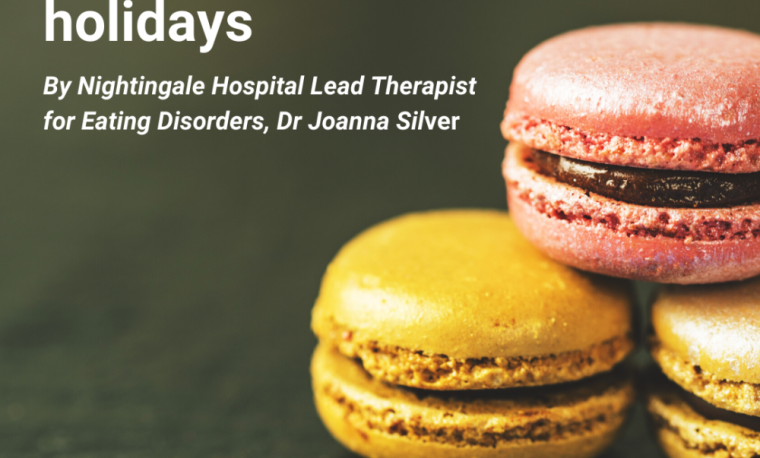What is an eating disorder?
An eating disorder is a mental health condition where food is used to cope with negative emotions or situations. It is characterised by persistent abnormal eating behaviours that negatively impact health, emotions, and ability to function in important areas of life. Individuals are so preoccupied with food and weight that they can focus on little else.
Research shows that the sooner an eating disorder is treated, the less chance the behaviour and thoughts that cause it to have to become ingrained, and the greater the chance of recovery.
There are four categories of eating disorders described in ICD 10 and DSM V:
- Anorexia nervosa
- Bulimia nervosa
- Binge eating disorder (BED)
- Other specified feeding or eating disorder (OSFED)
For a patient to be diagnosed with an eating disorder, they must have a psychological preoccupation with body weight and shape and abnormal eating behaviours.
Disordered eating is common; however, eating disorders are more persistent and cause more impairment in various aspects of physical, psychological and social functioning.
Obesity is not classified as an eating disorder.
Who may be affected by an eating disorder?
It is estimated that around 1.25 million people in the UK suffer from an eating disorder. Although more common in certain age groups, eating disorders can affect people of any age.
- 1 in 250 women and 1 in 2,000 men will experience anorexia nervosa at some point
- Bulimia is around two to three times more common than anorexia nervosa, and 90% are female
- Binge eating affects males and females equally and is estimated to affect around 5% of the adult population
Download the programme brochure
You can view a copy of the programme brochure by completing the form below.
Causes and signs of eating disorders
Factors that may cause an eating disorder
An eating disorder may be associated with biological, genetic, or environmental factors combined with a particular event that triggers the disorder. There may also be other factors that maintain the illness:
- Family history of eating disorders or other mental health conditions
- Difficult relationships and stressful situations
- Being criticised for eating habits, body shape, and weight or being overly concerned with being slim
- Underlying characteristics; obsessive personality, an anxiety disorder, low self-esteem or being a perfectionist
- Emotional or sexual abuse or the death of someone special
Signs of an eating disorder
It is common for someone with an eating disorder to be secretive and defensive about their eating and their weight, and they are likely to deny being unwell.
- Missing meals; repeated claims they’ve eaten are or eating later
- Only eating certain low-calorie foods such as lettuce or celery
- Cooking big or complicated meals for other people, but eating little or none themselves
- Feeling uncomfortable or refusing to eat in public places
- Complaining of being fat, even though they have a normal weight or are underweight
- Repeatedly weighing themselves and looking at themselves in the mirror
Complications of eating disorders
Eating disorders frequently produce severe medical complications in sufferers.
Physical complications of eating disorders include
- Reduced heart rate and blood pressure, abnormal heart rhythm, reduced cardiac muscle mass, and eventually heart failure
- Electrolyte abnormalities caused by vomiting can cause serious abnormalities of heart rhythm, even death
- Slowed gastric emptying, which results in pain and bloating, feeling easily full
- Acid reflux and hiatus hernia due to repeated vomiting
- Constipation due to reduced food volume weakened intestinal muscles
- Rupture of the stomach or oesophagus which can be life-threatening (extremely rare)
- Sex hormones oestrogen and testosterone fall
- Menstruation can stop or become irregular
- Reduced sex hormones increase the risk of bone loss (osteoporosis) and bone fractures
- Damage to the myelin around nerves can affect conduction, and cause numbness and tingling in the hands and feet
- Sleep disorders
Psychological and social impacts include
- Feeling out of control and helpless, guilt, shame, anxiety and self-doubt, obsessive thoughts and preoccupations, feelings of alienation and loneliness, increased isolation, and loss of connection
- Disruption of the family, through conflict over food, weight, treatment
- Family members often struggle with anxiety, guilt, and frustration
- Friendships and romantic relationships are damaged or destroyed
- The person with an eating disorder becomes emotionally withdrawn, irritable, loses libido, is secretive and controlling
Myths about eating disorders
Several myths exist regarding eating disorders, including:
- Eating disorders are a choice
- Only women get eating disorders
- Only young people get eating disorders
- Someone needs to be underweight to have an eating disorder
Eating disorders treated at Nightingale Hospital
We treat the following eating disorders at Nightingale Hospital, in central London:
- Anorexia nervosa
- Bulimia nervosa
- Binge eating disorder (BED)
- Other Specified Feeding and Eating Disorder (OSFED)
We are able to offer eating disorder treatment in the following settings:
We offer services for families.
Our team is led by:
- Nightingale Hospital Lead Consultant for Eating Disorders, Consultant Psychiatrist Dr Helen Murphy
Useful information resources for eating disorders
Beat, the UK’s eating disorder charity, provides many resources to support those with eating disorders and their families.
- Helpline
- Message board
- Online support groups
- Information Library
- Advice if you are worried about someone
*If you are enquiring about an emergency, please contact your general practitioner or local emergency services.











